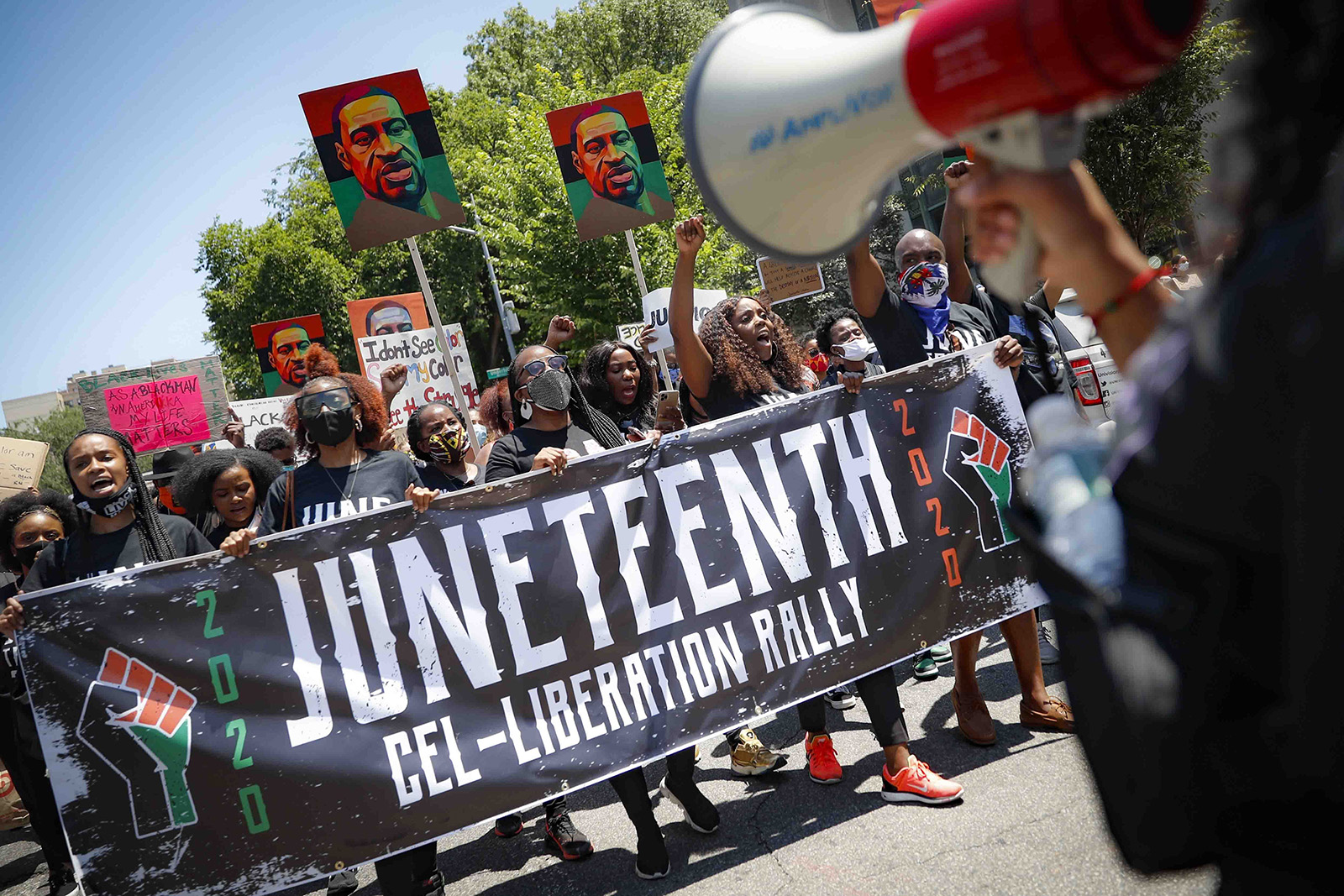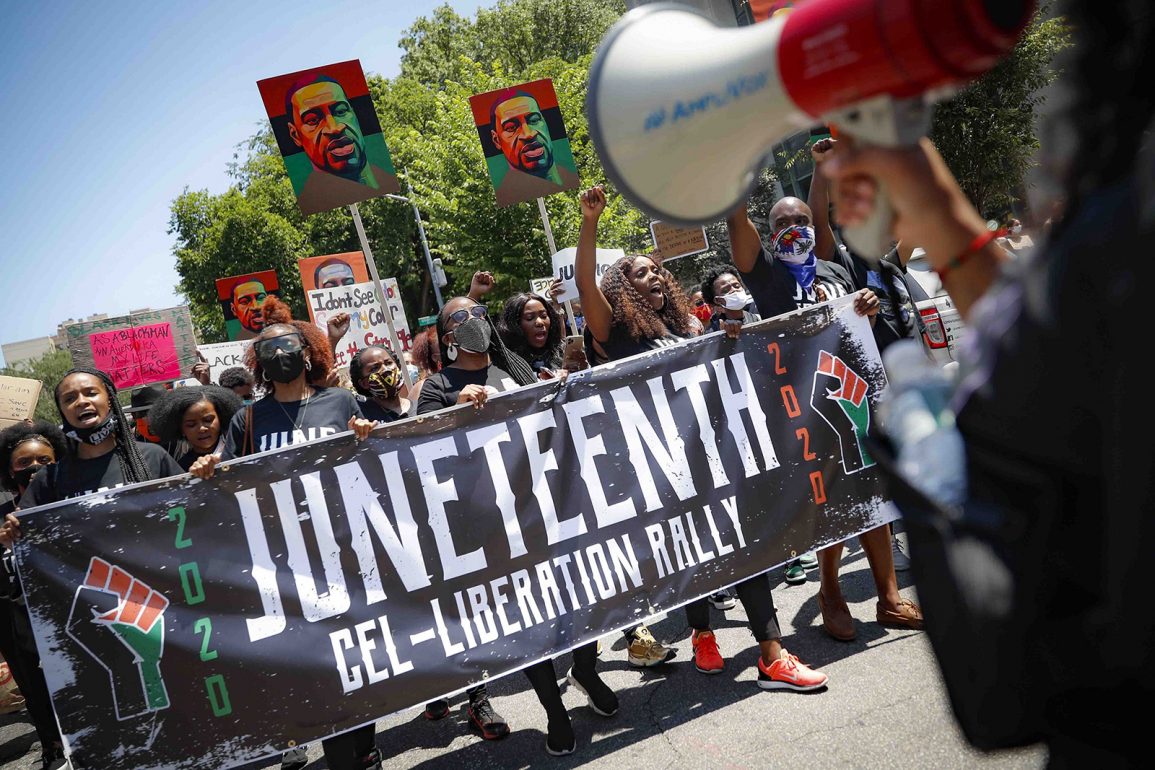
(RNS) — Juneteenth is sacred to me. It is not merely a holiday. It is a homecoming of the spirit, a holy moment of truth-telling, a faithful act of remembrance.
My ancestors were enslaved in Galveston, Texas, by Michel B. Menard, the city’s founder. They were members of First African Baptist Church, now known as Avenue L, founded in 1848. They were people of faith who believed that one day their freedom would come, just as it did for the children of Israel. And when that day finally arrived on June 19, 1865, they rejoiced.
This year, however, Juneteenth carries even more weight. Through DNA testing, I recently uncovered an uncomfortable truth. I learned that my second great-grandmother, Celestine, was born of rape. Her mother, Sarah, was an enslaved woman. Celestine’s father was Watt W.C. Seawell, a white man who was the grandson of Virginia Gov. John Tyler Sr. and the nephew of U.S. President John Tyler Jr. Sarah was legally Seawell’s property. She had no voice, no choice. She could not give consent. Her body, like the bodies of too many enslaved Black women, was a battlefield in America’s original sin. This is not just my family’s story. It is America’s story.
Yet today, powerful forces are attempting to erase that story. President Donald Trump recently signed an executive order titled “Restoring Truth and Sanity to American History.” In it, he called for the removal of what he labeled “improper, divisive, or anti-American ideology” from our museums, textbooks and public institutions. He is seeking to eliminate what he calls “wokeness,” by which he means the uncomfortable truths about race, power and injustice in America.
But I say this: The very truth Trump wants to erase lives in my DNA. It is my inheritance, and it is my sacred responsibility to tell it. The rape of my great-great-grandmother is not divisive. It is a historical fact. The legacy of slavery, resistance, Black faith and the struggle for freedom is not anti-American. It is what made America. Truth is not the enemy of patriotism. Silence is. That is why Juneteenth is more important than ever. It is a day not just of celebration, but of reckoning. A day to proclaim liberty and also to proclaim truth.
In Leviticus 25:10, the Word declares: “And ye shall hallow the fiftieth year, and proclaim liberty throughout all the land unto all the inhabitants thereof: it shall be a jubilee unto you.” My ancestors longed for that Jubilee — for the day they could be free, return to their families and rejoice without chains. In Galveston, on June 19, 1865, that day finally came. Union Gen. Gordon Granger declared the enslaved were free. Undoubtedly, they shouted, wept and gathered in places like Reedy Chapel AME Church to thank the God who had not forgotten them.
But freedom was only the beginning. The newly emancipated had to reimagine their lives. My ancestors changed their names. Other newly freed African Americans built schools, churches and communities. They rejected the myth of the “happy slave” and lifted their voices with conviction, as the old spiritual declares: “Before I’d be a slave, I’d be buried in my grave and go home to my Lord and be free.”
Now, 160 years later, we are called to do the same. It is my prayer that Juneteenth 2025 will move us to tell the whole truth about slavery, not just the sanitized version. I pray we will be compelled to protect truth in our schools, in our churches, in our museums and in our memories. And I pray we will have the courage to confront those who would rather comfort the powerful than confront the past.
Too often, America still lives in the reflection of slavery. I think of the Bowieville Plantation House in Upper Marlboro, Maryland. Its reflection shimmers in the still waters of the pond before it — pristine, undisturbed and unchanged. And that is what we too often see in this nation: the quiet preservation of the very systems that should have been dismantled long ago.
But reflections are not reality. And Juneteenth reminds us that Jubilee is still possible. Freedom is still worth fighting for. And truth, no matter how painful, is still what sets us free.
(The Rev. Kip Bernard Banks Sr. is pastor of East Washington Heights Baptist Church in Washington, D.C. The views expressed in this commentary do not necessarily reflect those of Religion News Service.)








